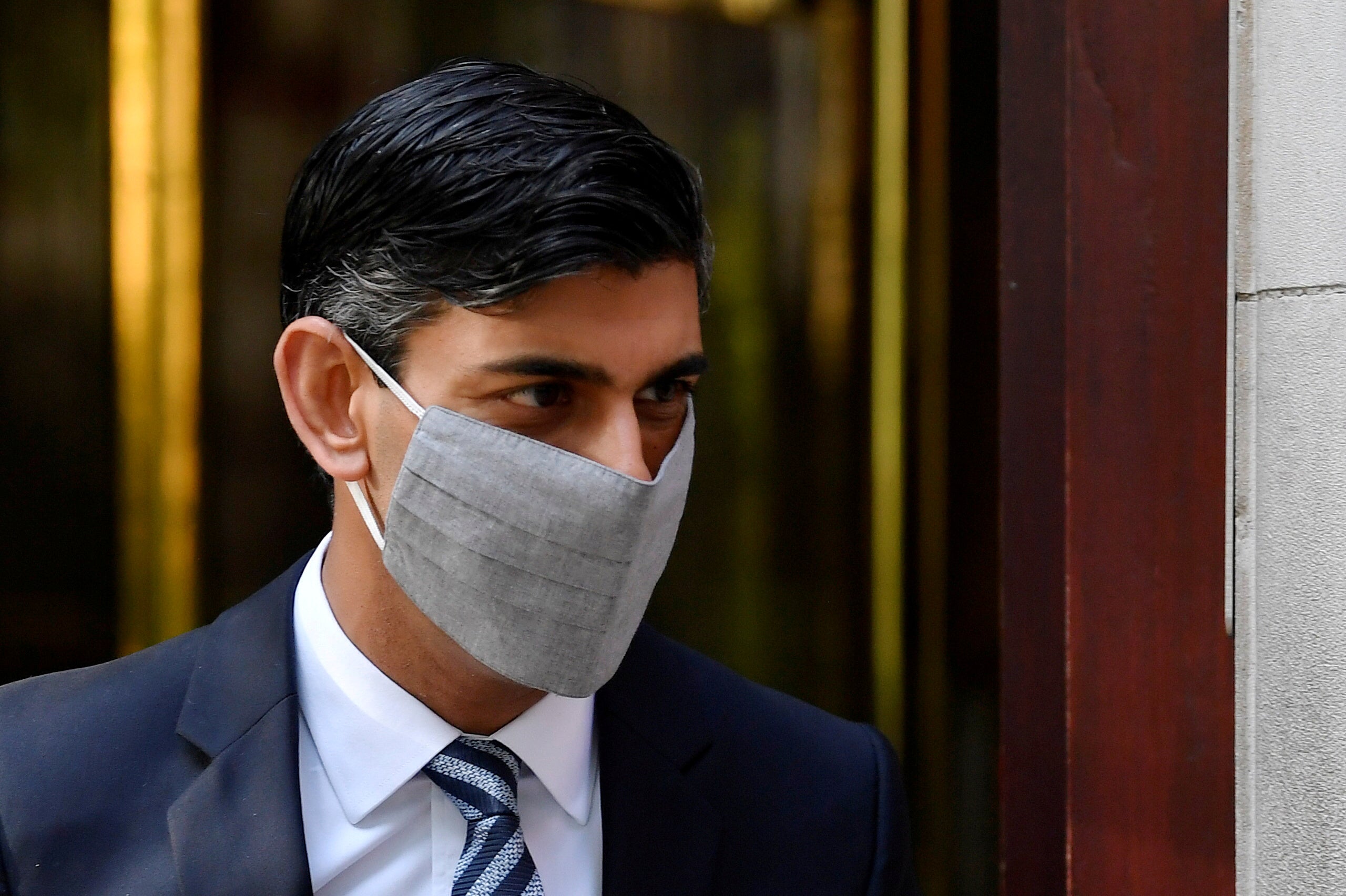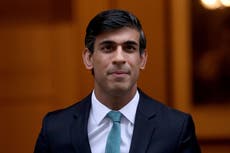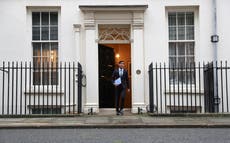What can we expect from Rishi Sunak’s Budget?
Analysis: Some think the 3 March fiscal event from the Chancellor could prove a pivotal moment for the economy. So what should we look out for?

Your support helps us to tell the story
From reproductive rights to climate change to Big Tech, The Independent is on the ground when the story is developing. Whether it's investigating the financials of Elon Musk's pro-Trump PAC or producing our latest documentary, 'The A Word', which shines a light on the American women fighting for reproductive rights, we know how important it is to parse out the facts from the messaging.
At such a critical moment in US history, we need reporters on the ground. Your donation allows us to keep sending journalists to speak to both sides of the story.
The Independent is trusted by Americans across the entire political spectrum. And unlike many other quality news outlets, we choose not to lock Americans out of our reporting and analysis with paywalls. We believe quality journalism should be available to everyone, paid for by those who can afford it.
Your support makes all the difference.Rishi Sunak has delivered more than a dozen emergency fiscal statements since the UK formally went into lockdown on 23 March 2020.
He has unveiled major schemes, ranging from the furlough, to Eat Out to Help Out, to bounceback loans for small firms.
Yet, strange as it might feel, 3 March will be the Chancellor’s first formal budget of the pandemic.
(His 11 March 2020 Budget came 12 days before lockdown and was predicated on the assumption of a relatively mild impact of the arrival of the coronavirus in the UK).
Some think this fiscal event could prove a pivotal event for the economy.
This Budget was originally supposed to have been held last November, and was postponed because of the raging pandemic.
The hope in the Treasury was that, by this month, the emergency would be over and the economic outlook would be much clearer, enabling the chancellor to confidently set tax and spending policies for the coming years.
But, as we know, the pandemic is not over, thanks to a second surge in infections when winter arrived, and we are, today, back in national lockdown.
The government’s impressive vaccine rollout and the re-opening roadmap recently outlined by the government raises the prospect of economic restrictions being lifted by June. But the reality is that economic outlook remains very clouded.
Yet the indications are the Chancellor is preparing to introduce more than a placeholder “wait and see” Budget.
He has been dropping heavy hints that he believes tax rises are necessary. And the assumption is that he will want to get many of these out of the way before the next election, due in 2024.
But economists warn of the danger of sucking spending power out of the economy in the near term, before the recovery is secure. And some are urging the Chancellor to enact a stimulus to ensure the recovery does not stall and that we don’t bake in permanent damage to our economy.
We will find out on 3 March whose advice he has heeded and whose he has ignored. So what can we expect?
Extension of support
Briefings from those around the Treasury strongly suggest that the Chancellor has bowed to intense pressure to extend the £20-a-week uplift in benefits implemented a year ago, which had been due to end in March. It would have been a very strange – and economically counterproductive – decision to allow support for some 6 million families to lapse during the middle of a slump.
Yet it seems Mr Sunak will disappoint those who think the benefits increase should be made permanent after decades of cuts to their generosity, with reports suggesting it will be scheduled to end in June.
It’s also expected that the Chancellor will extend the furlough scheme beyond the end of April, probably also until the middle of the year, and that he will announce a further slug of funding for grants for the self-employed.
The ending of this support in June, though, raises the prospect of a cliff-edge for the labour market at that point. So the Treasury has indicated there will be further support for re-training.
An important question is whether he will announce a bespoke employment support scheme for sectors such as aviation, which are set to still be in deep crisis later in the year due to ongoing travel restrictions.
The VAT cut for hospitality and leisure firms, due to end in March, might well be extended as could the business rates holiday for firms.
An extension of the stamp duty holiday for home buyers in England until June is expected. And the Treasury has also pre-announced that it will effectively resurrect the Help to Buy scheme, providing state guarantees of mortgages to allow people to buy homes with deposits of just 5 per cent on properties worth up to £600,000.
There might also be measures to encourage people to spend their hundreds of billions of pounds of “excess” lockdown savings in the manner of last summer’s Eat out to Help Out scheme.
A cancellation of the planned 5p a litre fuel duty increase - which now happens every Budget - is anticipated once again.
Public spending
The government has announced £1bn pounds of funding for schools to help disadvantaged children catch up on the schooling millions have missed out on during lockdown.
But the consensus is that considerably more will be needed, with the Institute for Fiscal Studies suggesting the bills will be “many billions”.
We can expect Mr Sunak to allot some of the £55bn pot he earmarked in the November 2020 Spending Review for public service spending for 2021-22 for this purpose.
He’s also likely to release a considerable sum from this pot for the health services, which say they needs extra funding to meet the large backlog of non-Covid patients that has accumulated over the past year.
Tax rises
The most contentious element of this fiscal package will be the size and timing of any tax rises, which Mr Sunak has insisted are needed.
The Treasury has floated all manner of potential levy increases in the media in recent weeks, from a big hike in corporation tax, to an equalisation of the rates of capital gains and income tax, to a digital sales levy, to a restriction on pension savings by the wealthy, to a freeze in income tax thresholds. Some have raised the possibility of a pandemic windfall tax on supermarkets.
What’s entirely unknown is how much the Chancellor will plan to raise in permanent tax increases at the end of the five year forecast period. We must also wait to find out in what fiscal year any increases will take effect. The closer they are the more potential for them to hamper the recovery. But the later they take effect, the closer they will fall to the next election.


Join our commenting forum
Join thought-provoking conversations, follow other Independent readers and see their replies
Comments